Previous:
PFMD
Brought to fruition with

As always, our commitment to catalyzing global learnings for local impact was showcased through our “global” approach, bringing FT3’s multi-stakeholder co-creation and best practice sharing to the local level in a range of regions. This is bringing us closer to our ultimate goal, which is to ensure every patient who can benefit from PM is offered it and can readily receive it.
A highlight of the year was the publication of our program's call to action paper, entitled,
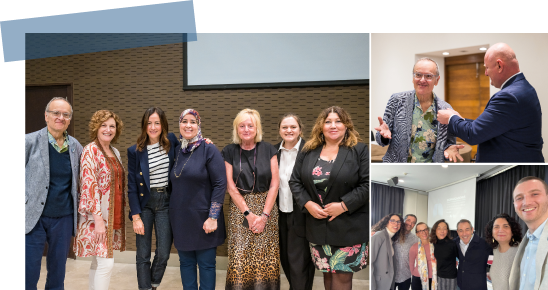
This important document outlines the many challenges to PM implementation, such as fragmentation of the PM landscape, siloed approaches, variations in availability and access, lack of standardization, and limited understanding of the patient experience throughout the PM pathway. By highlighting these issues, the paper emphasizes the need for collaboration among all PM stakeholders, including patient communities, to overcome these challenges and advance PM integration globally.
Welcome to the new members joining the FT3 Membership in 2023:
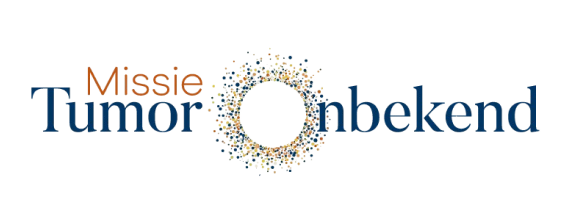
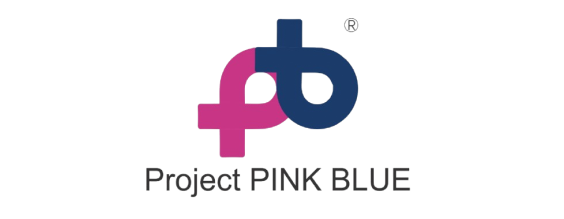
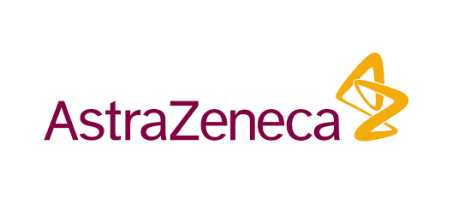

Special thanks to all the organizations that continued their unwavering support and contribution in 2023:
3854
Size of FT3 Network
400K+
Reach across FT3 channels
3473
People regularly engaging with FT3 socials
796
Resources downloads
We are as strong as our community. And we are proudly building close relationships with incredible representatives and supporters of FT3’s mission.
Click on the tabs above to navigate through sections
Additionally, we aim to accelerate efforts to identify and address structural challenges that hinder PM integration into health systems, and support the efforts of champions to influence system change by demonstrating the positive impact of PM on patient outcomes.
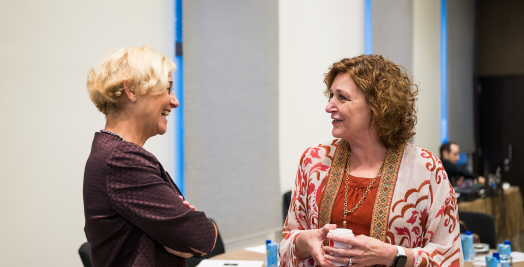
In 2023, we focused on building a common understand of the value of PM through the development of value frameworks for PM, the launch of “The Story of PM” - a platform to foster similar understanding of PM among all key stakeholders, as well as the creation of the Stakeholder Expectation Matrix, highlighting all key stakeholders expectations on the topic.
Another important effort accelerated efforts to influence system change through the creation of multiple country & condition cards, and setting the scene for Access & Advocacy efforts that will happen in 2024.
This initiative aims to communicate what exactly PM is and its benefits as part of an easy to understand narrative. We hope to demonstrate, through micro-pilots, that a common and lay language narrative can significantly enhance the understanding of PM among those less familiar with it, with the result of increasing uptake.
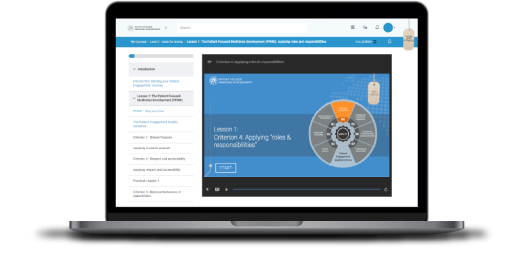
The platform's tools have now been piloted by two partners to test their effectiveness. Learnings indicate that the existing narrative and tools are effective in onboarding wide-ranging audiences on the basic premises of PM. Feedback from these pilots has highlighted the need for more targeted content to cater to different audiences.
So far, the platform has garnered significant attention, with over 2400 impressions and engagements through social media postings. It has also attracted more than 700 views by over 200 users. The next iteration of the "Tell the Story of PM" platform is now being incorporated into the FT3 website. This enhancement will make the platform even more actionable for PM champions, further helping to establish a common understanding of why PM matters and promote its widespread adoption.
This publication is based on in-depth interviews with key stakeholders in PM, revealing wide-ranging expectations and underscoring the necessity for a global, multi-stakeholder collaborative approach. This approach aims to connect and accelerate existing efforts and best practices to effectively integrate PM into healthcare systems. By clarifying expectations, the study aims to foster collaboration and consensus-building among stakeholders, all of whom unanimously agreed that PM should be implemented with the patient's best interests as the primary focus.
high-level policy focus on PM
genomic literacy among healthcare providers and patients
health technology assessment processes for PM
for balanced access to PM
collaboration among different stakeholder groups
reliable research standards to support PM implementation
The outcomes of the "Stakeholder Expectation Matrix" initiative are on track to support greater alignment between different stakeholder perspectives, increase reach in wide-ranging communities, and accelerate effective multidisciplinary, solution-oriented stakeholder engagement. This initiative is critical in driving a unified approach to PM, ensuring that all efforts are coordinated and focused on achieving the best possible outcomes for patients.

Tanya Knott
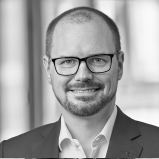
James Creeden

Benjamin Horbach

Zorana Maravic

Maximiliane Rauch

Lidewij Vat

Helena Harnik
By running micro-pilots in wide-ranging health system contexts, the project seeks to confirm the actionability of these cards for various use cases. Ultimately, the goal is to empower patient advocates, individual patients, and HCPs with an adaptable advocacy tool that can be tailored to different scenarios and needs.
One of the successes of this project has been in its broad geographic reach and use within markedly different health systems and jurisdictions. LATAM has been represented within the repository of Country & Condition Cards, expanding our reach in this region. A micro-pilot conducted in Morocco tested the cards' utility in supporting advocacy for integral change. Additionally, the Brazil lung cancer card extended our geographic reach to four continents. In Hungary, the lung cancer country card was tested with individual patients and HCPs to increase the uptake of PM solutions at the care delivery level. Moreover, we created country cards for three regions in Spain as well as a national card. Throughout this process, we have focused on scalability, refining adaptations for various use cases and aiming to create a set of adaptable templates for use in different scenarios.
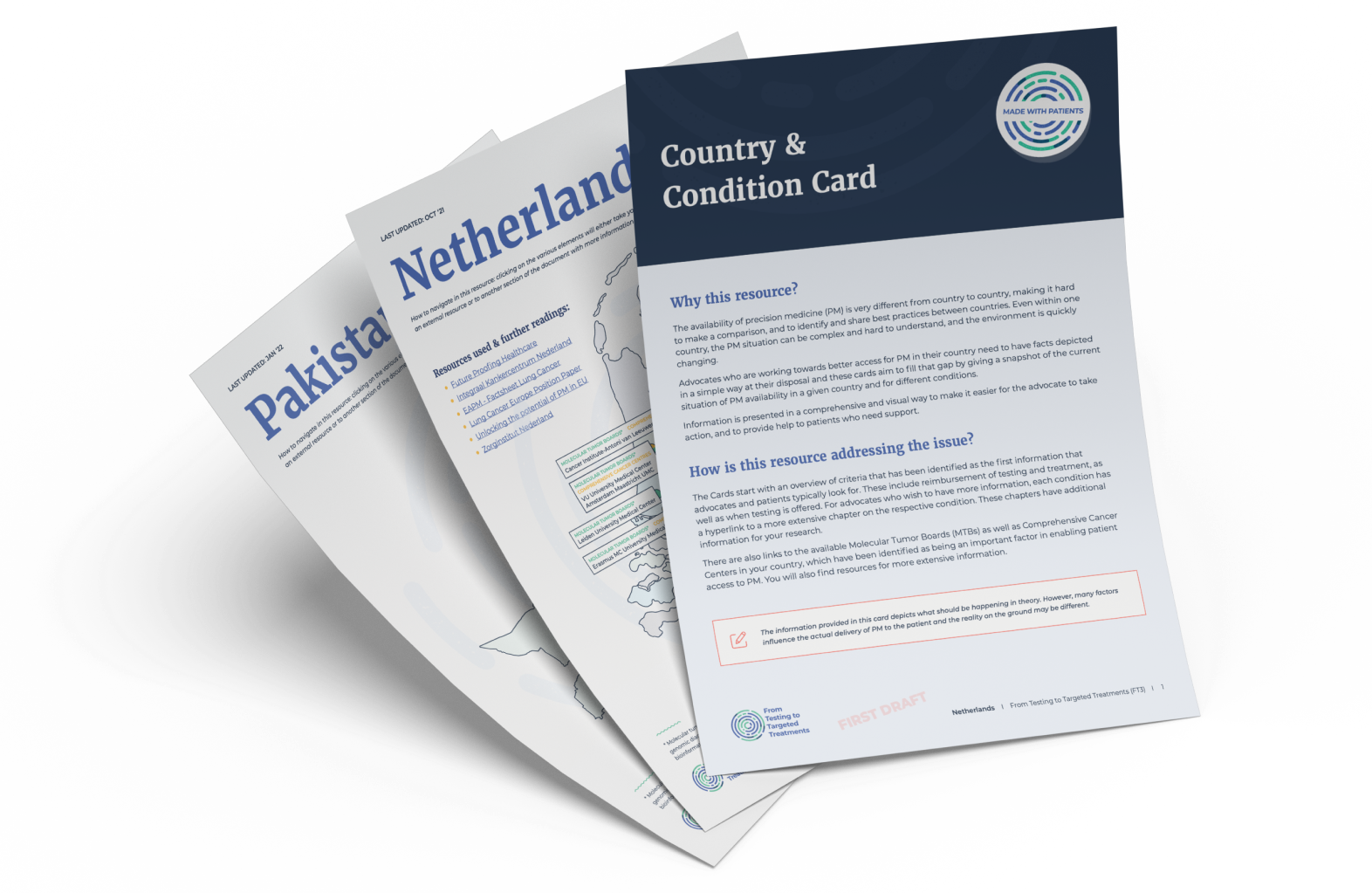
Initial results are promising.The "Country and Condition Cards" initiative has shown its adaptability and effectiveness in various contexts, supporting advocacy efforts and empowering stakeholders to advance PM access. By refining these tools based on feedback from the various micro-pilots, FT3 continues to enhance its impact across wide-ranging healthcare systems.
This initiative focuses on value demonstrations and assessments from a patient-centric perspective, exploring pathways to support the shift from traditional assessment and care to value-based care.
In 2023, our efforts centered on exploring different perspectives on the value of PM and the evidence requirements needed to evolve value assessment frameworks for decision-making. Multi-stakeholder workshops to increase system-level readiness for change were initiated. Through these consultations with leading organizations and experts, the need to address assessment pathways and evidence requirements comprehensively was identified.
Engaging with leading organizations and experts to uncover the need for addressing assessment pathways and evidence requirements.
Identifying gaps in the value assessment landscape by mapping key stakeholders and ongoing initiatives.
Developing multi-stakeholder workshops to connect decision-makers with other key stakeholders, co-creating pathways towards streamlined and effective value demonstration of PM solutions.
Initiating multi-stakeholder panel discussions to gather wide-ranging perspectives on the value of PM.
such as health economists and link to sister initiatives like the Patient-Centered Care (PCC) and HTAi.
2023 was just the beginning, but the positive feedback received on the project's remit underscores its potential to drive the adoption of evidence-based PM by decision-makers and it marks it as a clear focus for 2024.
Click on the tabs above to navigate through sections
By educating patients, we empower them to advocate for their health and navigate the PM landscape. We also focus on overcoming challenges at the point of care that hinder PM adoption, providing HCPs with the necessary tools and knowledge for effective decision-making. This collaborative approach ensures that precision medicine becomes a core component of healthcare delivery, ultimately improving patient outcomes and advancing the field.
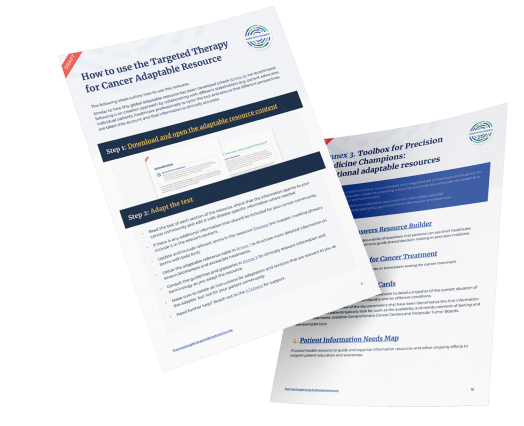
2023 focused on supporting patient awareness and empowerment, through adapting various PM resources to the local/ condition context, as well as exploring the integration of patient experience data in decision-making. Secondly, FT3 worked towards supporting shared-decision making in the field, starting from biomarker test reports disclosure.
This initiative provides easy-to-adapt educational resources and development support to local precision medicine champions, facilitating the creation of tailored educational materials. For the first time we started to explore the resources usability by health professionals, through the adaptation in the Hungarian context. Keep reading to find out more!
focused on targeted therapy for cancer, was made available for testing and feedback. An overview of the resource and instructions for use can be found here.
Existing resources were adapted for Spain and Hungary, focusing on colorectal cancer and lung cancer patients. These adaptations have confirmed the utility of the resources in aiding local patient organizations (POs) to develop new educational materials.
Adaptable resources are being tested in Hungary as part of country pilots, and piloted in Nigeria (pan-cancer), Spain (lung cancer), and Canada (NET and breast cancer).
A suite of adaptable educational resources is in co-creation for patients in Canada and Spain, covering lung, breast, GI, and NET cancers. These resources will help local POs develop new educational content.
The suite of adaptable resources has proven effective in supporting local patient representatives in disseminating information to patients. The successful implementation and reach within the Hungary pilot has inspired increased demand among member organizations and other countries, including Spain, Nigeria, and Canada.
By collecting these experiences, the project seeks to identify care level challenges and extract individual and collective learnings to inform strategies for patient-reported outcomes (PROs) and patient experience data (PED) in PM. The ultimate goal is to leverage these insights to improve care practices, support advocacy efforts, and increase access to PM.
piloted in Spain and the UK to capture patient lived experiences and access challenges at the point of care. This guide proved useful in supporting champions in advocating for the consideration of PED towards improved access. It also facilitated peer-to-peer learning within ALK+ UK’s network.
for collecting patient experiences using the co-created visualization was piloted, demonstrating its utility in various contexts.
the project has received increased attention in Hungary and Nigeria, with plans to explore a framework for identifying PED priorities in the next phase.
The repository of patient experiences has provided valuable insights into the challenges patients face at the point of care. By capturing these lived experiences, the project has supported local representatives in their efforts to improve access to PM. The successful implementation in Spain and the UK has set a precedent for broader application, inspiring interest in additional regions such as Hungary and Nigeria. Moving forward, a larger base of contributors will be essential to the successful implementation of the next steps, which include developing a comprehensive framework for prioritizing PED.
The project focuses on enhancing the utilization of biomarker test reports by making them more understandable to both HCPs and patients. Initial mapping revealed a lack of patient-provider engagement support and a fragmented landscape of guidelines and report designs.
A decision was made to focus on developing a patient-centric summary template for biomarker test results. This template aims to improve how HCPs handle and disclose results, thereby enhancing patient understanding and facilitating shared decision-making. A first wireframe for the patient-centric summary template has been co-created with the project group. This tool will serve as a results disclosure aid to support clinical actionability.
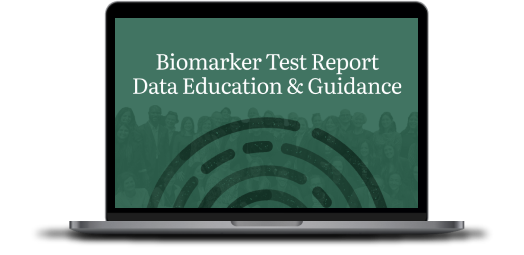
The project group also worked on a qualified pilot opportunity with an academic center in Naples, Italy. This pilot reflects real-world interest in the concept and aims to test the template's effectiveness, fostering connections with the pathology community. These connections highlight the potential to shift towards more patient-centered care in clinical practice.
The goal is to enhance the quality of interactions between healthcare professionals and patients, particularly in the diagnosis, treatment, and management of cancer.
In 2023, a scoping literature review was conducted to define the complexities of communication between healthcare professionals and patients in PM. This review aims to inform future activities and amplify best practices, drive calls to action for further research, and optimize clinical practice and multi-disciplinary approaches to patient support in precision oncology. The literature review has since been submitted to Cancer Medicine and was presented at psycho-oncology and nursing conferences in Italy, Germany, and Finland.
such as training gaps, nurse collaboration, society engagement, standardized testing, clinical standards, transformative oncology, and global language translation.
by connecting with HCP societies, offering education on PM, collaborating with patient organizations, establishing bridges for harmonization, and promoting involvement beyond oncology in molecular tumor boards.
such as recurring training programs, international molecular tumor boards, and fostering strong connections with molecular tumor specialists to enhance understanding and collaboration in genomics.
Additionally, a PEOF session provided insights that complement the contents of a manuscript currently under review with Cancer Medicine, both informing gaps and opportunities in provider-patient communication and SDM. Find out more about this session here.
Click on the tabs above to navigate through sections
By fostering collaboration among wide-ranging stakeholders and promoting innovative solutions, this initiative aims to accelerate the adoption and integration of PM worldwide, ultimately enhancing patient care and outcomes.
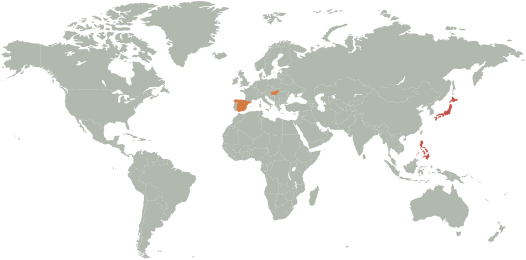
The Country Pilot program is dedicated to supporting local representatives and champions with implementation projects to accelerate patient access to PM in different healthcare archetypes.
FT3 has, to date, co-created a toolkit for “champions” of precision medicine (e.g. patient advocates, ambassadors from the healthcare community, etc.) to help drive change at different levels, including at the individual, collective, and system level. It was proposed that applying these tools in the local context within the framework of a larger project would help to improve awareness of and access to PM in regions and areas where patients are not benefiting fully.

including through a Community of Practice to share experiences and support local champions/advocates in improving access to PM
to make PM more usable to patients, learn about how to apply & improve FT3 tools locally to accelerate access
to share learnings & good practices with the wider PM community
In 2023, the Country Pilot program focused on identifying inequalities in access in a decentralized system where testing is not publicly reimbursed (pilot Spain), as a first step to exploring implementation strategies to address local challenges and information needs. In parallel, FT3 piloted strategies to accelerate access in a centralized healthcare system where testing is publicly reimbursed (pilot Hungary).
country pilots have launched, and 4 country pilots are in incubation
virtual global Community of Practice meetings supporting representatives with accelerating access to PM
guest speakers shared their learnings and experiences covering a range of topics and 4 condition areas
in-person workshop in Madrid. 34 participants across the globe shared learnings from pilots and how to apply the group’s collective intelligence to respond to common access challenges across 4 topic areas
That all people affected by lung cancer in Spain have balanced access to biomarker testing to identify the right treatment at the right time
Identifying patient information needs & gaps around biomarker testing
Informing advocacy on a national level by mapping the access status of biomarker testing in 4 autonomous communities
Conducting a nation-wide patient survey on knowledge on biomarker testing
Interviewing individual patients to capture their experiences alongside the patient journey
Conducting a survey targeting oncologists and pathologists to identify access gaps & challenges
Special thanks to the partners that made this work possible:
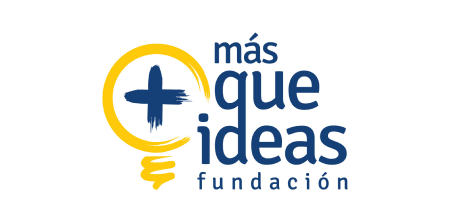
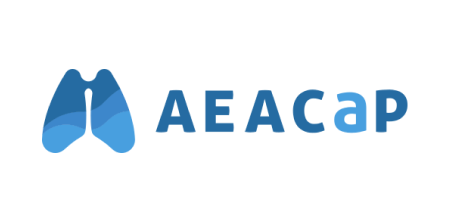



Fundación Más Que Ideas decided to lead the pilot because we had a great existing relationships with the other leading organization, AEACaP, and because it was presented as a blank page, so we could shape the pilot as we needed to match the local context and needs.
Diego Villalon
Fundación MÁS QUE IDEAS, Spain
It has been a privilege for me to participate in this project. I am confident that it will help to continue improving the situation of lung cancer patients in Spain. Very well done Diego, Bernard, Belen, and Laura! Also congratulations to the FT3 team!
Cristian Perez
Comment on LinkedIn
Spain - Impact overview towards accelerating efforts to address structural challenges to PM & increasing patient awareness and support patient empowerment
patients, of which 120 had biomarker testing, answered a nationwide survey on knowledge of biomarker testing The results highlight patient information needs and experiences with biomarker testing in Spain
HCPs answered a survey about access to PM
Results show regional disparities in access and
differences in system readiness
Spain lung cancer card showing the availability of biomarker testing & treatment, clinical guidelines, and hospitals
regional lung cancer cards showing the access situation in Cantabria, Catalonia and Andalucia
Demonstrate that access to biomarker testing can be improved by driving awareness among patients who could benefit, in an environment where testing is already available/reimbursed
Provide targeted and adapted educational support to patients to improve awareness of biomarker testing, targeted therapies, possible patient pathways, and reimbursement of testing and treatments, to enable them to have better discussions with their HCPs
Adapt educational materials to be fit-for-use that can be handed out or referred to patients by patient representatives or HCPs
Special thanks to the partners that made this work possible:




We want to see an increased number of Hungarian HCPs equipped with fit-for-purpose resources for lung cancer patients to support informed decision-making.
Erika Pataki
Lelek Zet Association, Hungary
The country pilot is a great project because we can rely on the expertise of the FT3 Community to conduct research in Hungary.
We found that it would be really nice to provide materials on the topic for [patients] - handing out materials to patients saves them time but also helps the patient community to have a better understanding of their diagnostic and therapeutic solutions.
Dr. Eszter Czibula
Hungary - impact overview towards increasing patient awareness and support patient empowerment & supporting HCPs and clinical shared decision-making
lay language resources were made available to HCPs in Hungary to hand out to patients.
workshops with 50+ HCPs at conferences and hospitals showcased the new resources to support HCPs in explaining to patients their treatment and providing the right information at the right time
Outreach efforts have reached more than 100 patients and 50+ HCPs in Hungary
Feedback from patients confirms an increase in patient confidence when communicating with healthcare professionals about precision medicine
The feedback received after 3 workshops with healthcare providers, hospitals and centers, shows the usefulness of the new resources to support HCPs in explaining to patients their treatment and providing the right information at the right time.
Future steps involve exploring country pilots in other archetypes and replicating insights in similar archetype systems. Furthermore, the program considers accelerating change and system readiness in emerging contexts, such as APAC, and local implementation support, such as peer-to-peer learning and capacity building among patient organizations and healthcare professionals.
This initiative supports the goal of building a unified and accelerated PM ecosystem by providing a platform where stakeholders can navigate the PM landscape, promote meaningful resources, and collaborate effectively.
PM Synapse serves as a vehicle to drive various FT3 project streams to success. It includes hosting an interactive map inspired by the country and condition cards and providing a space for mapping the quality of the testing landscape. The platform is actively used by members to disseminate and make available their events and resources, enhancing global collaboration and knowledge sharing.
PM Synapse has launched improved organization profiles that highlight main resources, initiatives, and events. This allows users to better showcase their contributions and connect with others in the PM community.
The platform functions as an interconnected and dynamic repository of PM experts, activists, initiatives, and resources. It focuses on building a crowdsourced, global, actionable community dedicated to precision medicine.
A Spanish version of the platform and new group functions within organizations are coming soon, expanding accessibility and usability.
PM Synapse maps the PM landscape on various scales through different lenses, reducing duplication and increasing access to potential collaborations.
By providing a centralized space for PM champions to connect and collaborate, PM Synapse (now available in French and Japanese) significantly contributes to the acceleration and unification of the global PM ecosystem.
By bringing together PM champions and initiatives, the CoP fosters collaboration to collect learnings and best practices from various health system archetypes. The ultimate goal is to enhance access to precision medicine by running proof-of-concept pilots that test the scalability of these practices in different local contexts.
This approach ensures a continuous feedback loop, where local learnings are brought back to the global level, fostering a truly "global" methodology that accelerates progress while addressing specific regional needs.
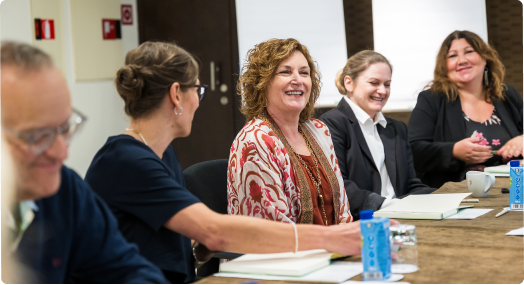
to identify replicable best practices and strategies for improving access to PM
through the FT3 community, with support from the FT3 Country Pilots Task Force
to discuss projects, exchange ideas, and collaborate on PM initiatives
on effective local interventions, including campaigns and materials developed by advocates.
on emerging PM topics, focusing on patient needs and advocacy
through system mapping and stronger networking
emphasizing a diagnostics and treatment minimum requirement
to address delays in diagnostic and treatment turnaround times
through Molecular Tumor Boards, which serve as guiding frameworks within medical reference networks
to address the needs of those affected by PM
using success stories and relevant data to demystify cancer and reduce stigma
By continuously integrating local learnings into a global framework, the Community of Practice strengthens the precision medicine ecosystem, ensuring that scalable, impactful solutions are usable across wide-ranging health contexts.
1,120,000 €
Turnover
1,099,075 €
Project Expenses